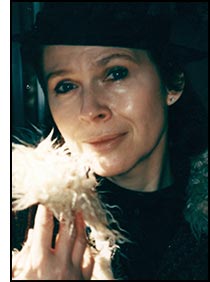Writing about releases and permissions makes me feel like I fell into a swimming pool full of snakes.
The more I struggle, the more I learn about where I am, the more creeped out I am. After researching the subject, I am convinced that I need an ironclad release for everyone and everything in my film, writing and photography.
If you want to see exactly how complicated the subject of rights and permissions can become, just Google "Hurt Locker lawsuit."
This article is an informal discussion of the subject with some real-world anecdotes from a filmmaker, an actor, a writer and a producer.
Disclaimer: This article is NOT legal advice. Instead, it is merely a collection of stories and anecdotes about releases and permissions. Let me say that again: This is not legal advice! If you need legal advice, talk to an entertainment lawyer about your specific production. Once again: This article is not legal advice.
If anyone would know how to stay out of trouble while making controversial films, it would be Oscar nominated, Emmy winning filmmaker Dorothy Fadiman. Fadiman has been successfully making and distributing documentaries about explosive social issues for over thirty years.
 I first met Dorothy when I helped her write Producing With Passion: Making films that change the world.
I first met Dorothy when I helped her write Producing With Passion: Making films that change the world.
When I asked Dorothy how she handled releases, she said:
“Every film and every country requires different releases, depending on the situation. There are, however, two releases that I get every time I shoot. The first is a “model release” or “signed permission form” from each interviewee. This allows me to use the interview both in the film and in publicity. If an interviewee changes his or her mind about being in the film, you have a signed release, and you are protected.
However, if someone really doesn’t want to be in one of my projects I usually try to edit them out, even if I have their signed release.”
Dorothy’s talk about model releases made me wonder what it was like to be on the other side—the actor’s side—of signing a model release. Although I have asked people to sign model releases for years, it never before occurred to me to find out what actors think of releases.
Over lattes at a local coffee shop, I asked actress and singer Margery Bailey (you can find her on Facebook) if she had anything to say about releases. And, whew! Did she.
“Every actor has a release story!” she exclaimed.